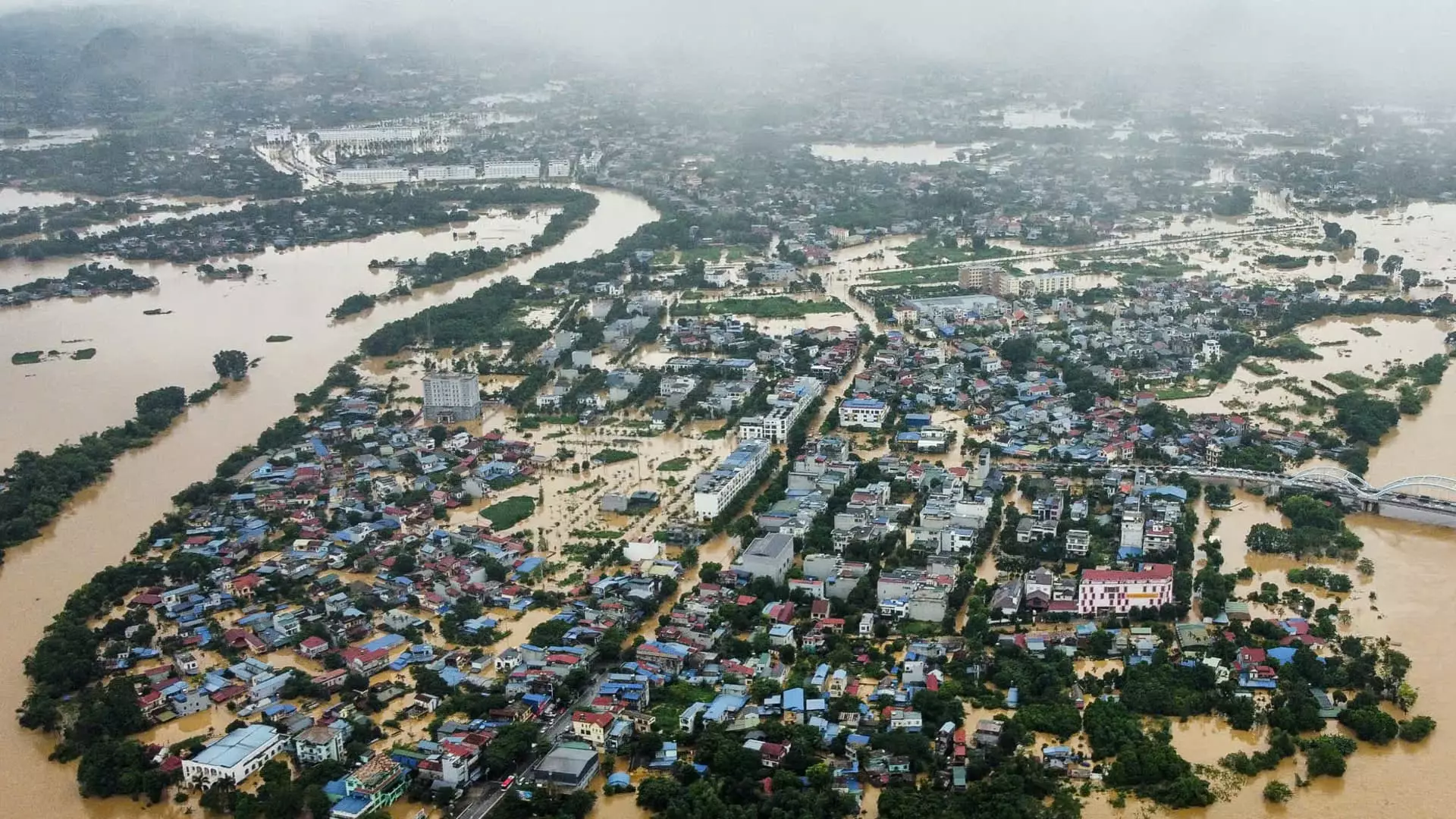As we reflect on the year 2024, it becomes increasingly evident that the Indo-Pacific region faced an array of challenges, yet managed to showcase resilience and cultural vibrancy. Amid severe climate changes that wreaked havoc and resulted in thousands of casualties, nations across Asia grappled with pressing social issues, particularly concerning demographic shifts and political turbulence. While the year underscored an array of negative developments, it also revealed a tapestry of hope, driven by cultural exports and community spirit.
2024 will undoubtedly be remembered for its horrendous climate-related disasters that disrupted countless lives across the region. Super Typhoon Yagi, one of the most devastating storms in recent history, wreaked havoc throughout Southeast Asia in November. From the Philippines to southern China and Vietnam, this typhoon claimed hundreds of lives and obliterated the livelihoods of numerous communities. This tragic narrative was further amplified by widespread flooding resulting from monsoon rains, which led to significant losses in Afghanistan, Bangladesh, Pakistan, India, and Nepal. The sheer scale of these climatic events raises vital questions about collective global preparedness and the resilience of regional infrastructures to withstand such powerful natural forces.
While public interest often flares up in the aftermath of such disasters, it fades into forgetfulness as time marches on. The notion of “climate casualties” in 2024 furthers the urgency of discussions surrounding climate action—a plea for advocacy in one of the most affected regions on Earth. The tragedies of 2024 could serve as a catalyst for regional transformation, but only if the voices of affected communities are amplified and recognized by the powers that be.
As one traverses the piece of land that stretches across East Asia, a stark reality looms—record-low fertility rates. Nations such as South Korea, China, Japan, Taiwan, and Hong Kong are witnessing a worrying pattern of declining birth rates, a situation aggravated by evolving gender norms, pressures of modern work life, and the skyrocketing costs associated with raising children. By the end of 2024, South Korea officially entered the ranks of “super-aged” societies, with more than 20% of its population aged 65 or older. This dual demographic shift poses severe implications for the economy, healthcare, and social structures, thereby requiring immediate analytical intervention.
Governments in the region now face the dilemma of how to address these demographic challenges. Public discourse must shift to promote policies that support family-building efforts. Initiatives such as affordable childcare, better job security, and housing assistance could generate positive outcomes for aspiring parents and set the stage for healthier population growth rates in the future.
Political instability characterized many nations within the Indo-Pacific region in 2024. Elections shaped much of the regional discourse, with political trajectories vast and varied. The year opened with controversy as Bangladesh’s Prime Minister Sheikh Hasina faced unprecedented backlash following a contentious election marred by allegations of fraud and human rights abuses. The sudden transition from avoidance to resignation brought into question the fragility of democratic values in certain democracies.
Similarly, South Korea’s political atmosphere shifted dramatically, with President Yoon Suk-Yeol declaring martial law after losing general elections. This unforeseen development culminated in a rapid series of political events, ultimately placing him under the scrutiny of the constitutional court. Yet not all political narratives were steeped in controversy; Taiwan’s vibrant democracy emerged triumphant alongside the peaceful transfer of power in Indonesia, where former General Prabowo Subianto assumed the presidency. This contrasting tapestry of governance illustrates the complexity of democracy across the Indo-Pacific.
Despite significant challenges, 2024 also marked the flowering of South Korean culture on a global scale. The “Hallyu Wave,” or Korean Wave, has blossomed into an unparalleled phenomenon, infiltrating mainstream global culture. From K-pop sensations like BTS and Blackpink to globally acclaimed films and series, South Korean culture is reshaping entertainment and cultural narratives around the world.
In 2024, the triumphs of Korean cultural exports resulted in economic implications, with projections stating that Hallyu could generate approximately $198 billion for Korea by 2030. Moreover, the awarding of the Nobel Prize for Literature to Korean author Han Kang highlighted the growing recognition of Korean literary prowess, thus affirming the region’s cultural significance. As communities grapple with various systemic issues, cultural renaissance serves as a beacon of hope and unity.
In the realm of social media, unlikely stars emerged in 2024, proving that sometimes, fame can come from unexpected quarters. Moo Deng, a baby pygmy hippopotamus born in Thailand, became a sensational figure across social platforms, thrumming with popularity in a digitally-driven age. The euphoric fanfare surrounding her portrayal in various media exemplifies the capacity of innocence and charm to unite individuals and cultures. This phenomenon was not just a passing curiosity; Moo Deng’s viral appeal echoed a universal desire for joy amid a world often clouded by hardship and uncertainty.
In summation, the year 2024 encapsulated a period of paradoxical experiences for the Indo-Pacific region. While there were struggles and challenges that marked the landscape—climate disasters, declining birth rates, and political upheaval—the resilience of cultural narratives and the celebration of unexpected joys like Moo Deng resonate deeply within the collective consciousness. It serves as a poignant reminder that even in times of distress, communities can rise, adapt, and find ways to celebrate life.

